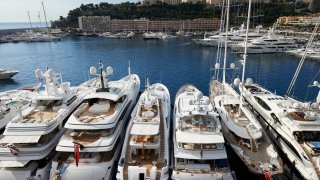The global luxury yacht market is currently navigating turbulent waters as new European tariffs threaten to significantly alter purchasing dynamics for wealthy American buyers. With a substantial portion of the world’s exquisite luxury boats meticulously crafted in European shipyards, and the United States representing the largest consumer base, recent tariff announcements have sent ripples of concern throughout the international trade sector, prompting industry experts to brace for considerable fallout.
The European Boating Industry has voiced strong apprehension regarding the new 15% tariff rate, emphasizing its potential to create serious challenges for businesses reliant on the vital U.S. export market. This additional levy on high-value recreational vessels introduces a significant cost consideration, fundamentally reshaping the economic equation for those contemplating the acquisition of a multi-million dollar yacht.
Historically, most yacht construction contracts stipulated that the builder would cover import duties. However, legal experts in maritime law contend that these newly imposed tariffs are unlikely to fall under existing duty clauses, effectively shifting a significant portion, if not the entirety, of this financial burden directly onto the buyers. This contractual nuance demands careful negotiation between purchasers and shipyards, particularly for bespoke vessels already under long-term construction agreements.
Faced with this impending tax, affluent yacht purchasers are, true to form, exploring sophisticated strategies for tax avoidance. The most prevalent and legally sound method emerging is “foreign flagging,” a long-established practice within the maritime world that allows owners to circumvent direct importation duties by registering their vessels in another jurisdiction.
This ingenious approach involves formally registering the luxury boat in a country with favorable agreements with the United States, thereby allowing the vessel to enter U.S. waters as a “visiting vessel” rather than an imported good subject to tariffs. Common jurisdictions favored by yacht owners for this purpose include the Cayman Islands, the Marshall Islands, Malta, and Jamaica, each offering distinct advantages for international trade maneuvers.
Maritime legal counsel highlights that the tariff simply does not apply if a yacht is never technically imported and never crosses the customs border line as a permanent entry. This strategic registration process, while offering a clear pathway for tariff evasion, is generally deemed financially and logistically practical only for larger, more substantial luxury boats. Smaller recreational vessels, typically those under 45 feet, are more likely to incur the additional tariff costs.
Interestingly, the introduction of these tariffs could inadvertently stimulate the domestic market. Industry analysts speculate on a potential increase in demand for U.S.-based yacht manufacturers such as Westport, Trinity, and Burger Boat Company. Furthermore, with the pre-owned yacht market currently experiencing a downturn following its post-pandemic surge, the tariffs might bolster sales and prices for used luxury boats already registered within the United States, offering a silver lining amidst the shifting global trade landscape. This demonstrates the dynamic interplay between tariffs and the broader wealth management strategies of high-net-worth individuals.






Leave a Reply